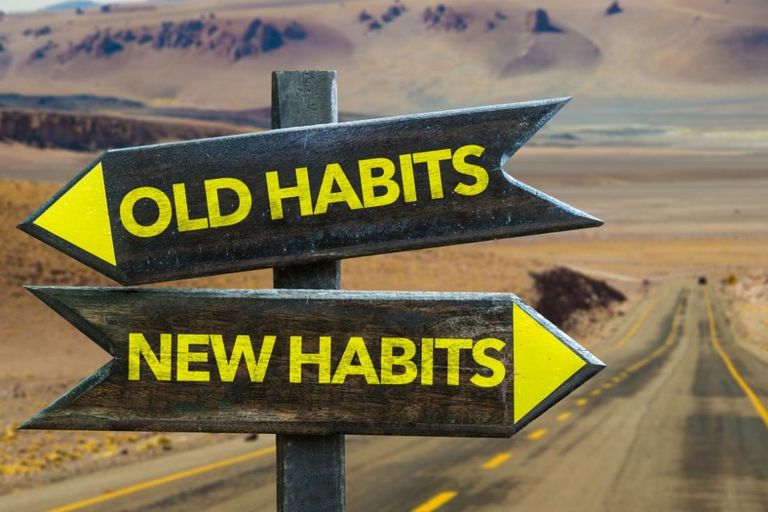
Repetition is the source of habits. They are frequently beneficial and a typical aspect of life. We have an advantage when our behaviors become automatic since our brains can carry out tasks without requiring conscious thought. This allows our minds to focus on other things.
Additionally, positive or joyful experiences might set up habits by activating the brain's "reward" centers. This may lead to the establishment of potentially dangerous habits including binge eating, smoking, abusing drugs or alcohol, gambling, or even excessive computer and social media use. The excellent news is that people are more than just habitual beings. To assist us make the greatest decisions for our health, our brains contain many additional regions.
1 . Reduce the amount of time you spend engaging in the behavior you're attempting to stop. Getting rid of cigarettes from your home or altering your journey to avoid the store where you usually buy them are two possible ways to stop smoking. Make it unappealing: This stage could require more time, but make an effort to convince yourself that you don't engage in the conduct you wish to give up.
2 . Select an alternative behavior to your unhealthy habit. You should prepare in advance for how you will react to the boredom or stress that triggers your unhealthy habit. For example, what will you do if you feel the urge to smoke? Whatever the situation, you must have an agenda for whatever you will do in place of your unhealthy behavior.
3 . Reduce the amount of time you spend engaging in the behavior you're attempting to stop. Getting rid of cigarettes from your home or altering your journey to avoid the store where you usually buy them are two possible ways to stop smoking.
4 . Eliminate all the triggers to that habit as you can. Avoid going to the public if you smoke while you're drinking. If you consume cookies while they are in the residence, discard them all. Should you grab the TV remote the moment you settle down on the couch, conceal it in a closet located in a separate room. By avoiding the triggers of harmful habits, you can make it simpler on yourself to quit them. Your current surroundings facilitate your bad habit and hinder your positive behaviors. You can alter the result by altering your surroundings.
5 . Make it unappealing: This stage could require more time, but make an effort to convince yourself that you don't engage in the conduct you wish to give up.
6 . Take up a joint venture with someone. As an alternative, quit jointly in a pair. You two have the ability to support one another through challenges and share in triumphs.
One of the strongest motivators is realizing that there are others who expect you to perform better.
We humans are far more adept than any other animal at modifying and focusing our conduct toward long-term objectives or advantages, Sometimes, despite knowing that you should change, even when you think you should, you find yourself rejecting the change.
Upvoted. Thank You for sending some of your rewards to @null. Get more BLURT:
@ mariuszkarowski/how-to-get-automatic-upvote-from-my-accounts@ blurtbooster/blurt-booster-introduction-rules-and-guidelines-1699999662965@ nalexadre/blurt-nexus-creating-an-affiliate-account-1700008765859@ kryptodenno - win BLURT POWER delegationNote: This bot will not vote on AI-generated content